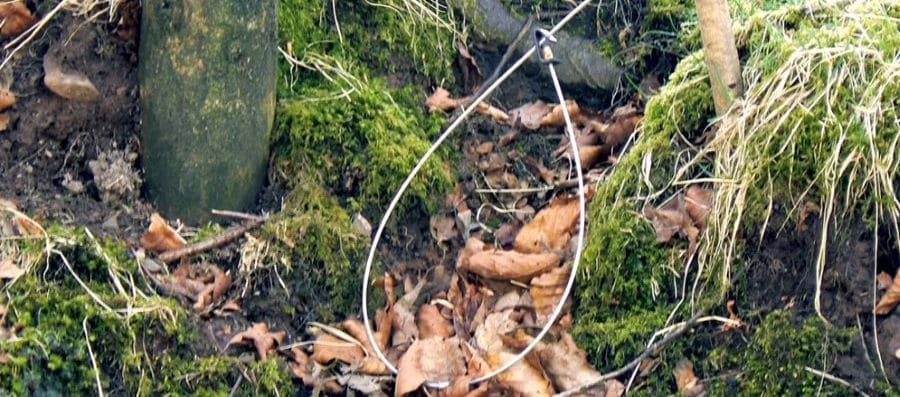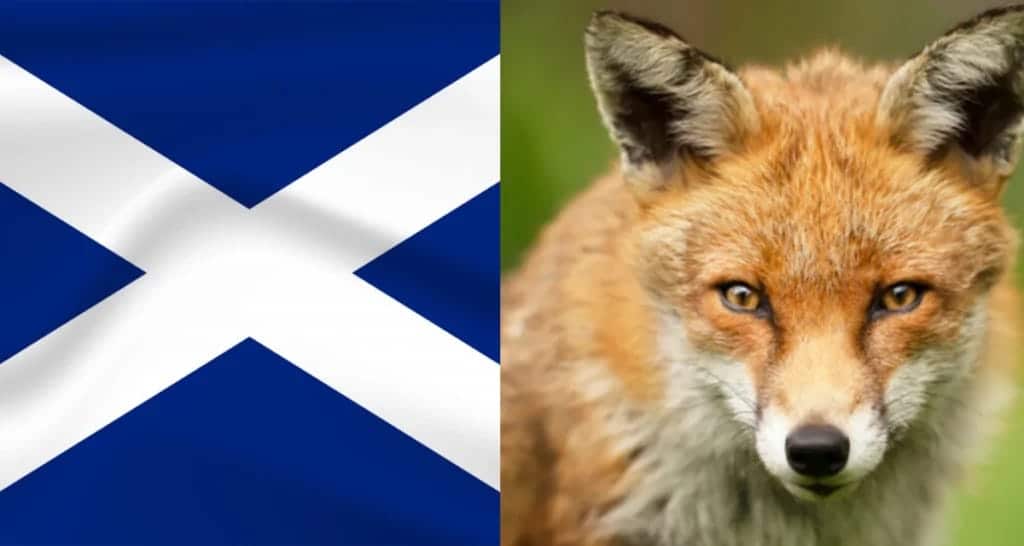Holyrood’s Rural Affairs and Islands Committee met on 7 February to discuss amendments to Scotland’s Wildlife Management and Muirburn Bill. The Bill is at stage 2, and the committee voted on an amendment, put forward by MSP Gillian Martin, which will make snare use illegal.
Seven MSPs voted for the amendment, with two voting against (Conservative MSPs Finlay Carson and Rachael Hamilton). The country is hot on the heels of Wales, which has already passed a law banning snares.
Martin said to the Committee:
“This Parliament can no longer ignore the weight of evidence that snares lead to unacceptable levels of suffering, not just for wild animals, but for domestic animals which can also become trapped in them.”
However, she continued:
“I recognise that control of predators is necessary in order to protect vulnerable species, as well as livestock and agriculture. However, I am confident that a ban on the use of snares would not prevent anyone from undertaking necessary wildlife management and that there are still sufficient alternative methods of predator control that can be used.”

Ongoing pressure from the shooting industry
Protect the Wild has previously reported on how the shooting industry has attempted to bully Holyrood. Landowners and gamekeepers had been pressuring politicians to make it legal for them to use ‘humane cable restraints’ (HCRs). But these so-called ‘humane’ restraints are just the same old snares being marketed as something else, and Holyrood isn’t fooled. The shooting industry had also put the same pressure on the Welsh parliament before it ruled snares illegal, too.
After this latest Stage 2 meeting, the Scottish Gamekeepers Association (SGA), one of shooting’s most vocal lobby groups, warned:
“The SGA notes the potential legal challenge to the decision of the Welsh Parliament to ban snares in Wales and this will be closely monitored by the industry…
We will also be keeping a detailed record of how the snare ban is impacting rural businesses and conservation and will be taking this evidence to the Parliament at every opportunity.”
Blaming ‘predators’
It’s worth noting at this point the ecologically illiterate rant of the aforementioned Conservative MSP Rachael Hamilton to justify killing native predators. Denying the mountain of evidence of widespread wildlife crime on grouse moors, she made the nonsensical claim that “there’s no connection between raptor persecution and grouse moors. There are other reasons for persecution and those reasons would be predation, intraguild predation, the habitat etc” – an astonishing piece of misinformation that is either based on deliberately lying to Parliament or showcasing an extraordinary ignorance that makes her unfit to participate in such serious discussions.
Meanwhile, Scottish Land and Estates (SLE), which represents a number of landowners and rural businesses, continues to express its frustration over the ban. SLE landowners had previously signed a letter to the Scottish government, arguing their usual fictitious tale that ‘humane’ cable restraints are “vital in protecting livestock and ground-nesting birds.”
After this Stage 2 meeting, SLE’s director, Ross Ewing, said:
“We remain strongly opposed to the minister’s amendment which will prohibit snaring and the use of humane cable restraints. Scotland has already lost nearly half of its historic land-based biodiversity and there will be an enduring negative impact on red-listed ground nesting birds and other biodiversity as a direct consequence of this decision.
It is not by accident that many of their last remaining strongholds are in areas where active predator control – including the use of humane cable restraints – is taking place.”
Parroted again and again by land owners and gamekeepers this line about red-listed birds aims to put the focus on curlews rather on the ground-nesting birds the industry is actually fixated on: pheasants, partridges, and grouse. Perhaps their claims would have more credence if the industry hadn’t lobbied so hard to keep on shooting red-listed Woodcock, Ptarmigan, and Black Grouse.
It is also sad that Martin, in her speech to the committee, followed the unquestioning line that “the control of predators is necessary in order to protect vulnerable species”, yet didn’t acknowledge that Scotland’s biodiversity has been severely impacted by the shooting industry. As Protect the Wild regularly points out, gamekeepers release millions of non-native Eurasian pheasants into the countryside each year, which gives foxes an abundance of easy prey – therefore keeping the mammal’s population high. So it would be wise for Holyrood to acknowledge the very obvious reasons why predator populations are deemed ‘too high’, and to tackle the alleged ‘problem’ at source: the shooting industry.
The ban is coming
Nevertheless, the imminent ban on snares should be celebrated; it will spare countless animals unnecessary suffering. England, meanwhile, shows little sign of following Scotland or Wales in banning snares. With pro-shooting ministers in key positions, the Tory government is not fit to look after the country’s wildlife, putting its friends’ – and its own – shooting interests above all else.
But most European countries have now outlawed snares. As Scotland ploughs ahead with being the next, England will surely be feeling immense pressure to follow suit.
Holyrood will hold a Stage 2 amendment session on grouse shooting and muirburn on 21 February.

